When it comes to the idea of renovating your property for income production, there are a lot of key factors to consider in relation to expecting a higher rental income and market property value post-renovation.
Obviously, below are key questions to ask yourself when it comes to making that decision:
- Is the expected increase in rental income able to cover the estimated renovation cost perhaps within a year or two?
- Is the current condition of the property needing renewal to keep up with other properties in terms of improving your property’s rental appeal?
- What about the current market value of property in original conditions versus renovated ones?
- How is the demand for rental properties in your area and what about the supply of units?
- What is the overall real estate market trend, particularly for your area, is it stable, or is it expecting a future rental income increase?
- What is your risk profile in terms of your capacity, tolerance or risk required?
One last important question which has always been missed out by investors is asking yourself whether renovation gives you tax benefits. Below is a list of benefits you can get from that:
- The cost of renovating your property can be claimed as tax depreciation deductions.
- With higher tax deductions claimed this way, you get to pay reduced income taxes, improving your cash flow and profitability.
- Any ‘scrapped’ part of the property being demolished and disposed of can help you claim even more deductions as their residual depreciation values are written off as full tax deductions.
- In the case of a sale of an asset say for example an oven, the proceeds from this sale can be included in your assessable income, just worth noting if this asset was used to generate rental income, it will be subjected to capital gains tax (CGT) and that is if the proceeds are greater than the asset’s adjustable cost base (In terms of CGT event, we will cover it in another article in details)
On a final note, for you to be eligible to claim residual value deductions/scrapping value, the demolished part of your property or disposed-off assets needs to be income-producing to be eligible for claiming instant tax deductions in the financial year they were removed.
You may ask how you can value these disposed-of items for your claims. At depreciation, we are specialized and qualified to help you assess the conditions of these items then accurately value their residual scrapping value.
Therefore, to ensure you claim the maximum scrapping value for your demolished works/assets, get in contact with us right now for a no-obligation assessment for free.


